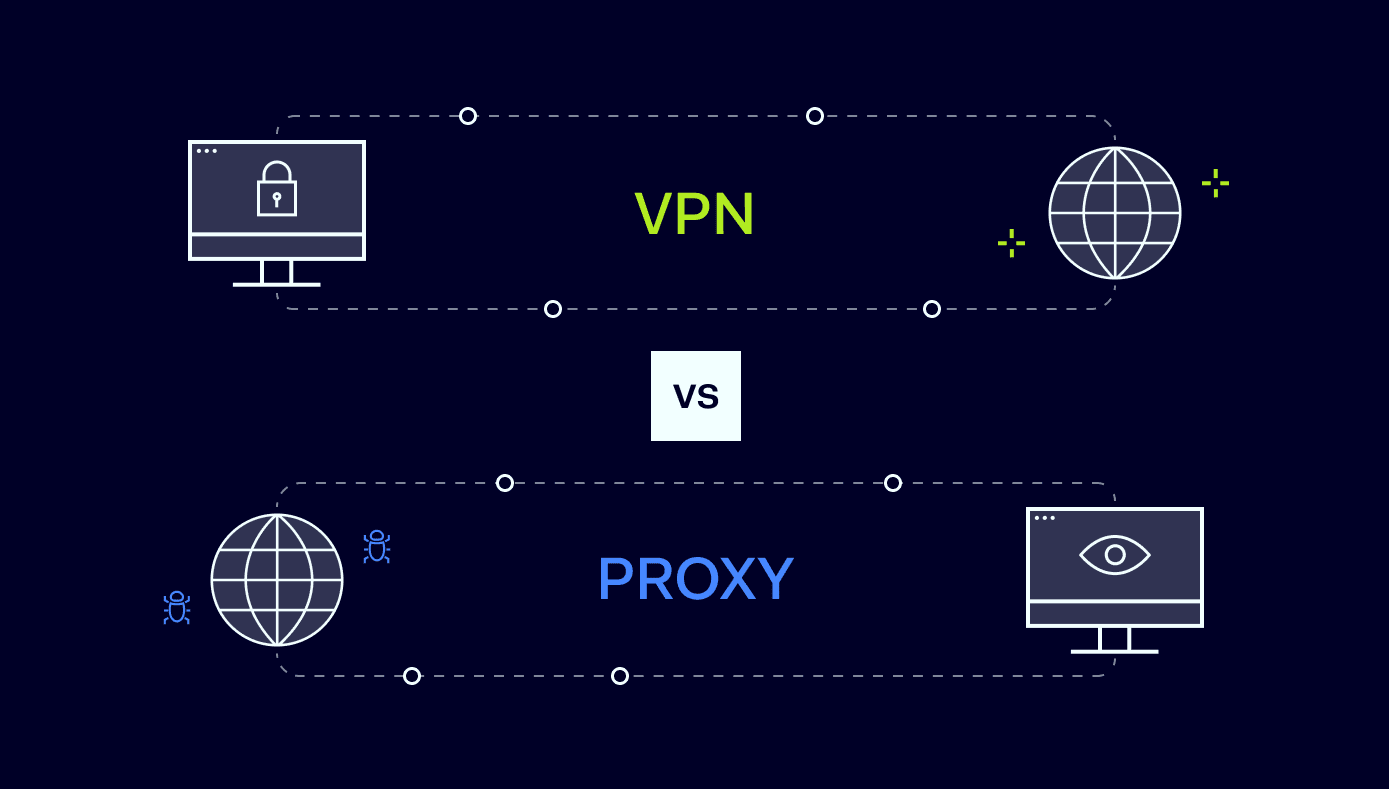In today’s digital age, privacy and security have become paramount. As internet users, we often come across terms like proxies and VPNs. While they both serve similar purposes, there are nuanced differences between the two. In this article, we will explore the distinctions, use cases, benefits, and potential drawbacks of Proxies VPN on Turbo4g. Understanding these tools will empower you to make informed choices about safeguarding your online presence.
What are Proxies?
Proxies act as intermediaries between your device and the websites you visit. They mask your IP address and allow you to browse the web anonymously. Proxies help users access region-restricted content, enhance online security, and protect personal information by hiding your true location.
Types of Proxies
There are various types of proxies available, including HTTP proxies, SOCKS proxies, and residential proxies. HTTP proxies are commonly used for general web browsing, while SOCKS proxies offer better support for non-HTTP protocols. Residential proxies mimic real IP addresses, making them useful for tasks such as web scraping and social media management.
Advantages of Proxies
Anonymity: Proxies let you hide your real IP address, providing added privacy and protection.
Unblocking Content: Proxies like Turbo4g allow access to regionally restricted content by altering your virtual location.
Improved Speed: By caching frequently accessed web pages, proxies can enhance browsing speed.
Task Automation: Specific proxies designed for automation help businesses and individuals perform tasks more efficiently.
Limitations of Proxies
Limited Encryption: Proxies typically offer little to no encryption, potentially exposing your data to interception.
Susceptible to Malicious Proxies: Free or untrustworthy proxies can pose security risks, with the potential for data breaches and malware infections.
Restricted Functionality: Proxies may not support all protocols or applications, limiting your online activities.
What are VPNs?
Virtual Private Networks (VPNs) create an encrypted connection between your device and the internet. When you connect to a VPN server, your internet traffic is routed through an encrypted tunnel, making it harder for third parties to monitor or track your online activities. VPNs provide strong security, privacy, and a range of other features.
Advantages of VPNs
Enhanced Security: VPNs encrypt your internet traffic, protecting your data from hackers, governments, and surveillance.
Anonymous Browsing: VPNs hide your IP address, making it difficult for websites to track your location and identity.
Public Wi-Fi Protection: VPNs shield your data when connected to unsecured public networks, safeguarding it from potential attacks.
Geo-Spoofing: VPNs allow you to access content restricted to specific regions, expanding your online possibilities.
Limitations of VPNs
Cost: While some free VPNs exist, premium VPN services often come with a subscription fee. However, the costs are minimal compared to the added security and features.
Potentially Reduced Connection Speeds: Due to the encryption and rerouting of traffic, VPNs can occasionally result in slower internet speeds.
Compatibility Issues: Some applications or websites may not function optimally or may restrict access when a VPN is activated.
Use Cases and Scenarios
- Proxies are often used for basic web browsing, accessing regionally restricted content, and web scraping.
- VPNs are ideal for secure browsing, accessing geographically restricted content, protecting online transactions, and bypassing censorship.
Frequently Asked Questions (FAQ)
Are proxies legal?
Proxies are generally legal, but their use can vary depending on the country and intended purpose. It’s essential to check your local laws and policies regarding proxy usage.
Can I use VPNs and proxies simultaneously?
Yes, it is possible to use VPNs and proxies simultaneously. However, it depends on the specific software and configurations you are using.
Do VPNs slow down internet speeds?
VPNs can potentially slow down internet speeds due to the encryption and routing processes involved in ensuring privacy and security. The extent of the slowdown varies based on the VPN service and your internet connection.
Can proxies or VPNs protect me from all online threats?
Proxies and VPNs can provide an extra layer of protection, but they cannot guarantee complete protection from all online threats. They can help protect your privacy and encrypt your data, but other security measures like using strong passwords and being cautious online are also important.
Are free proxies or VPNs safe to use?
Free proxies or VPNs may not always be safe to use. Often, these services have limitations, lower security standards, or may collect and sell user data. It’s advisable to opt for trusted and reputable paid options for stronger privacy and security protections.
Tips and Advice
- Research and choose reputable Proxy for VPN providers to ensure security and reliable service.
- Opt for paid VPN services when possible, as they offer better security, privacy, and customer support.
- Consider your specific needs, whether it’s basic anonymity or advanced security, when selecting between proxies and VPNs.
- Regularly update your VPN client or proxy software to protect against any potential security vulnerabilities.
- Check the jurisdiction of your chosen VPN provider to understand legal implications and data protection policies.
In the realm of online privacy and security, both proxies and VPNs play crucial roles. Proxies offer anonymity and access to restricted content, while VPNs provide robust encryption and security features. Whether you need basic protection or advanced security, understanding the differences between proxies and VPNs will assist you in making the right choice to safeguard your online activities and personal data.

